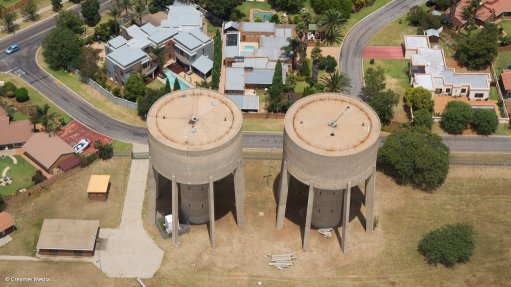
Photo by: Duane Daws
Various partners in the Water Sector Leadership Group (WSLG) have agreed to tighten the management of water and sanitation with the aim of hastening service delivery among communities and thus meet the United Nation’s Sustainable Development Goal 6 by 2030.
At a special meeting convened by the Department of Water and Sanitation in Pretoria on Thursday, delegates agreed on the urgency of their task and said it was important to co-operate on various matters such as water use and scarcity, waste water and water quality, co-operation and participation on sanitation and hygiene, drinking water and ecosystem.
Participants came from, among others; the Water Research Commission, Water Entities, Council for the Scientific Research Institute (CSIR), South African Water Caucus, National Business Initiative (, Stats SA, Strategic Water Partners Network (SWPN), Trans-Caledon Tunnel Authority and catchment management agencies (CMAs). The department’s master plan on water and sanitation will be the epicentre and guiding compass for the water sector leaders’ work.
A departmental Sustainable Development Goal working group was established to continue the work of WSSLG through 11 task teams that will divide work according to their expertise. SDG 6 contains 6 targets and two sub-targets, all of which are focused directly on water services – including sanitation – and water resource management that must be achieved by 2030.
The first target stipulated under SDG 6 is to achieve universal and equitable access to safe and affordable drinking water for all. Secondly, the target aims to achieve access to adequate and equitable sanitation; hygiene for all citizens and end the practice of open defecation. Another target is to increase water-use efficiency across all sectors, to ensure sustainable withdrawals and supply of fresh water, and to address water scarcity.
However, SDG 6 is not without its challenges that hamper the WSLG from performing its tasks. Inconsistency in terms of data management in the water sector and inability to spend the allocated funds efficiently, effectively and sustainably allocated are good examples of such challenges. The sector also needs more money to address these gaps as they continue haunting our vision for 2030 and beyond. An enabling environment is important if we were to spend the allocated resources accordingly.
Addressing delegates, DWS’ Deputy Director-General for Strategic and Emergency Projects, Trevor Balzer, said the national water and sanitation master plan points out the priority actions required for 2030 and beyond to ensure water security and equitable access to water and sanitation services for South Africans.
“It was developed in partnership with all relevant organs of state and water sector stakeholders to give effect to local, regional, national, continental and international water and sanitation delivery targets and commitments. Furthermore, the objective was to ensure integrated planning and development across the entire water value chain”, Balzer said.
Ms Deborah Mochotlhi, DWS’ acting Director-General, appealed to delegates that they be ready for the uptake of advanced technology and innovation. “The uptake of new technologies towards an enabling environment for innovation and thus aggressively industrialise the water and sanitation sector, is among key strategic actions for achieving SDG 6 by 2030 and beyond”, Mochotlhi said.
Issued by the Department of Water & Sanitation